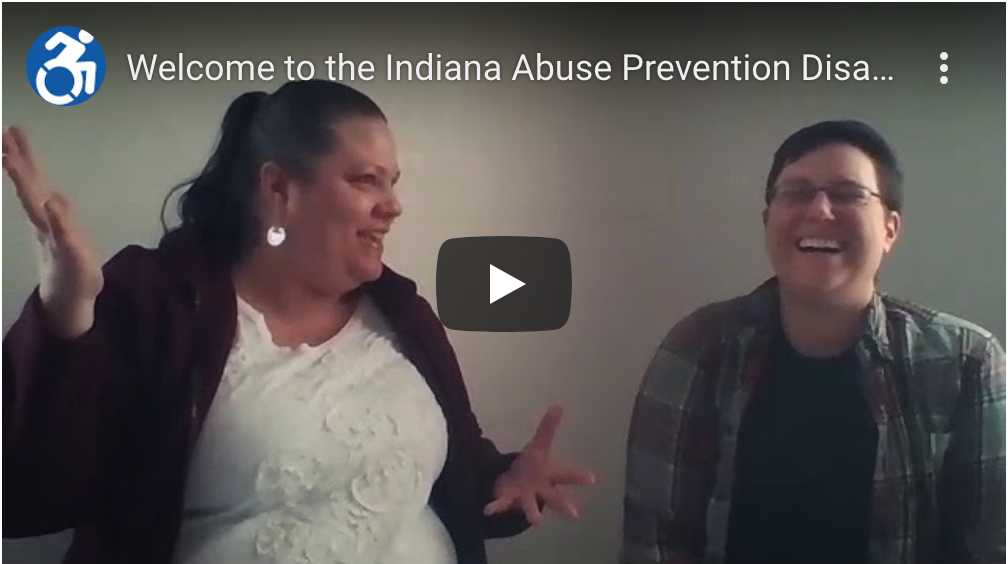Preventing Violence Against People with Disabilities Resources from Indiana
People with disabilities are made vulnerable to sexual and intimate partner violence by systems of oppression. Despite the greater need for preventing violence against people with disabilities, prevention conversations do not always explicitly include or focus on strategies that bridge the sexual and intimate partner violence prevention movements with disability justice movements. The Indiana Abuse Prevention Disability Task Force is launching their next 5-part series of web conferences on sexual violence prevention for folks with disabilities with a focus on disability justice.
 The topics for this part of the series includes prevention with people who are Deaf and hard of hearing; mental health, neurodivergence, and sexual violence prevention; accessible organizing; a social justice framework for service providers; and a surprise topic for their final web conference in this series in January. Past topics include a historical context of disability justice and primary prevention and other introductory topics for sexual violence prevention for people with disabilities. Past web conferences can be found on the Indiana Disability Justice & Abuse Prevention Task Force YouTube channel.
The topics for this part of the series includes prevention with people who are Deaf and hard of hearing; mental health, neurodivergence, and sexual violence prevention; accessible organizing; a social justice framework for service providers; and a surprise topic for their final web conference in this series in January. Past topics include a historical context of disability justice and primary prevention and other introductory topics for sexual violence prevention for people with disabilities. Past web conferences can be found on the Indiana Disability Justice & Abuse Prevention Task Force YouTube channel.
These free web conferences and the Indiana Abuse Prevention Disability Task Force’s free Patreon are great resources for prevention practitioners to learn socially just ways to prevent violence against people with disabilities. Folks from the Indiana Abuse Prevention Disability Task Force also recently presented their work on the PreventConnect Prevention Town Hall.
Creating safe, healthy, and equitable communities free from violence means doing this for all in a community, and especially for those who have been made most vulnerable through systems of oppression. Learning from resources like the ones listed above from Indiana is one way prevention practitioners can begin to translate knowledge to action and prevent violence against people with disabilities.
